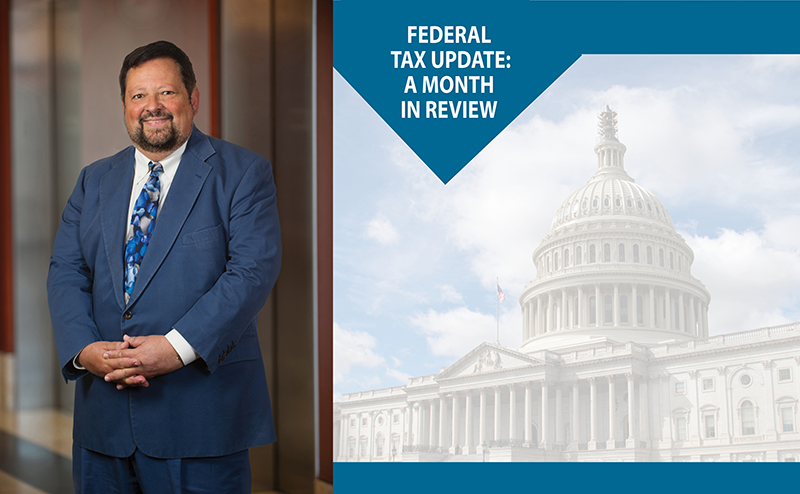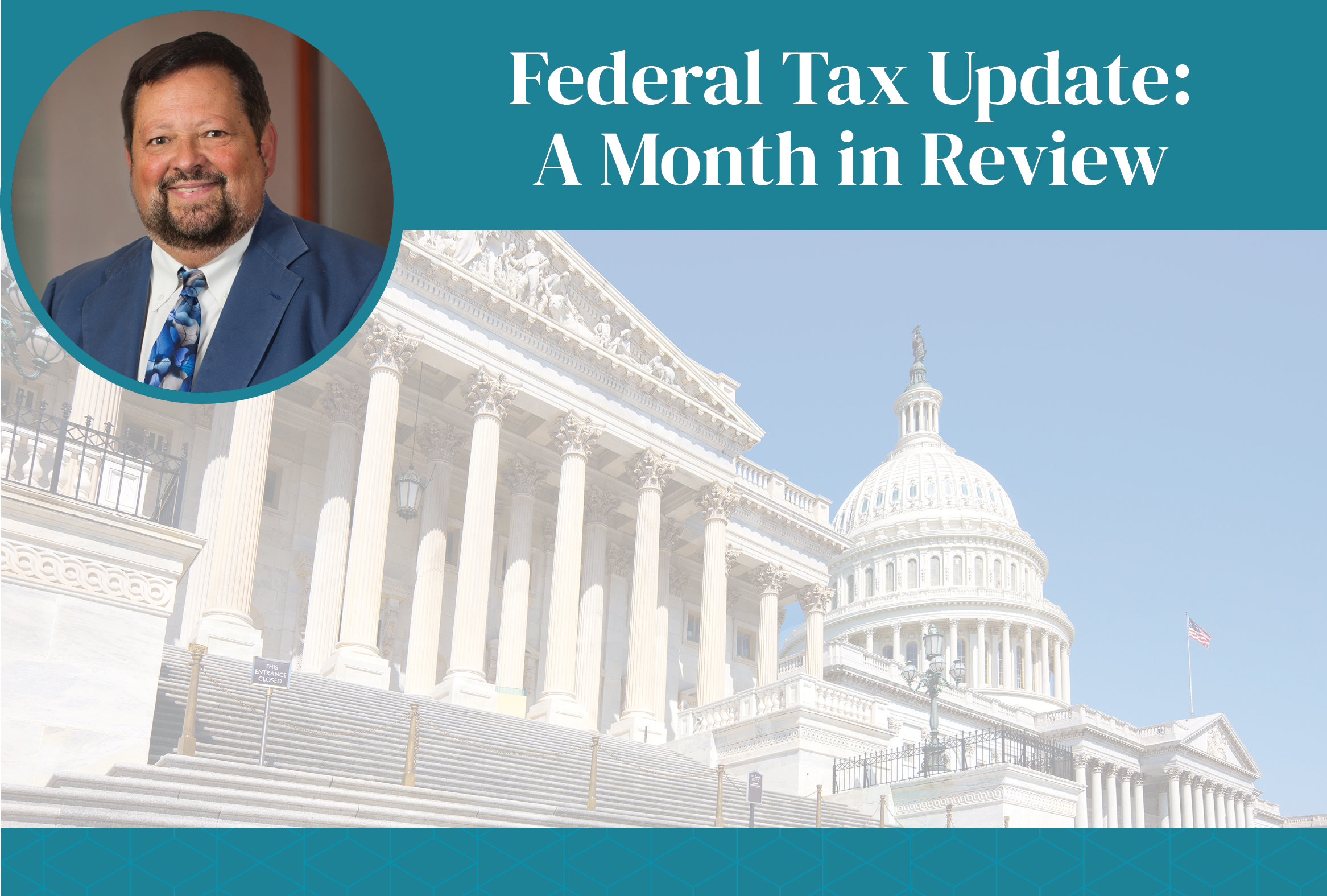December 1st, 2022
November Federal Tax Update
Posted in: Tax Law Tagged: David S. De Jong

INDIVIDUALS
In Tillman-Kelly v. Commissioner, TC Memo 2022-111, the Tax Court found that payment to a whistleblower for retaliation against him was includable in income as humiliation and isolation did not constitute physical injury.
RETIREMENT AND ESTATE PLANNING
In United States v. Parks, 130 AFTR2d 2022-________, a Michigan Federal District Court ruled that, as a result of a 1981 law change, the special use valuation election under Code Section 2032A can be made on a late filed return as long as it is the initial estate tax return.
BUSINESS
In Olsen v. Commissioner, 130 AFTR2d 2022-6350, the Tenth Circuit Court of Appeals agreed with the Tax Court that an individual lacked a profit motive in a sale and lease back arrangement where repayment would be from the sale of solar lenses; the Court found that the taxpayer did not research profitability and accepted Government testimony that the system could not generate electricity and would never be commercially viable as established (the taxpayers hurt their case by claiming depreciation and a credit based on the full cost although they were only 30 percent owners).
In Chief Counsel Advice 202246010, IRS indicated that the individual designated on a partnership return as the Tax Matters Partner under prior law serves in that role if eligible under the law and not a different person named in the Operating Agreement.
In Letter Ruling 202247004, IRS gave relief from inadvertent termination of an S election in the case of a limited liability company taxed as a corporation where its Operating Agreement referred to capital accounts and called for possible disproportionate distributions on liquidation.
PROCEDURE
In Green Valley Investors v. Commissioner, 159 TC No. 5, a divided Tax Court concluded that IRS violated the Administrative Procedure Act in issuing a 2017 Notice which identified certain syndicated conservation easement transactions as “tax avoidance” and, accordingly, “listed property”; the Court agreed with an earlier decision of the Sixth Circuit Court of Appeals.
In Hallmark Research Collective v. Commissioner, 130 AFTR2d 2022-________, a unanimous Tax Court found that the 90-day rule for filing a petition in the case of an alleged deficiency is absolute and not subject to equitable tolling; the US Supreme Court previously and unanimously found in Boechler v. Commissioner that the 30-day appeal period on Collection Due Process appeals was nonjurisdictional and subject to tolling.
In Parker v. Commissioner, TC Memo 2022-110, an individual living only on social security disability was given equitable innocent spouse relief where he participated with his former wife in a joint return and did not report most of the proceeds of her discrimination suit; he stated that he called IRS which told him it was nontaxable (IRS agreed with innocent spouse status but the former wife intervened).
In Reynolds v. Commissioner, TC Memo 2022-115, a lawyer and mother of five was denied innocent spouse relief when she remained married to her husband who served years in jail for stealing from his church employer; the Court believed that she had reason to know of his conduct through irregular electronic deposits in a joint account and that she derived benefit from the underreported income including four family cars, private school for two children, vacations and luxury fashion items.
In Kun v. Internal Revenue Service, 130 AFTR2d 2022-________, a California Federal District Court concluded that the three-year period after filing a tax return before bankruptcy can be filed precludes filing of a Chapter 11 proceeding before the three-year date and conversion to a Chapter 7 thereafter.
In In Re: Tillman, 130 AFTR2d 2022-________, a divided Ninth Circuit Court of Appeals reversed an Arizona Federal District Court and concluded that a debtor retains the entire homestead exemption and does not need to reduce it by the amount of a tax lien satisfied by the proceeds.
In Chief Counsel Memorandum 202244010, IRS conceded that it could not impose a penalty for inadequate disclosure in the case of microcaptives where it gave only interim guidance in the form of a Notice that was never converted into a final Regulation.




